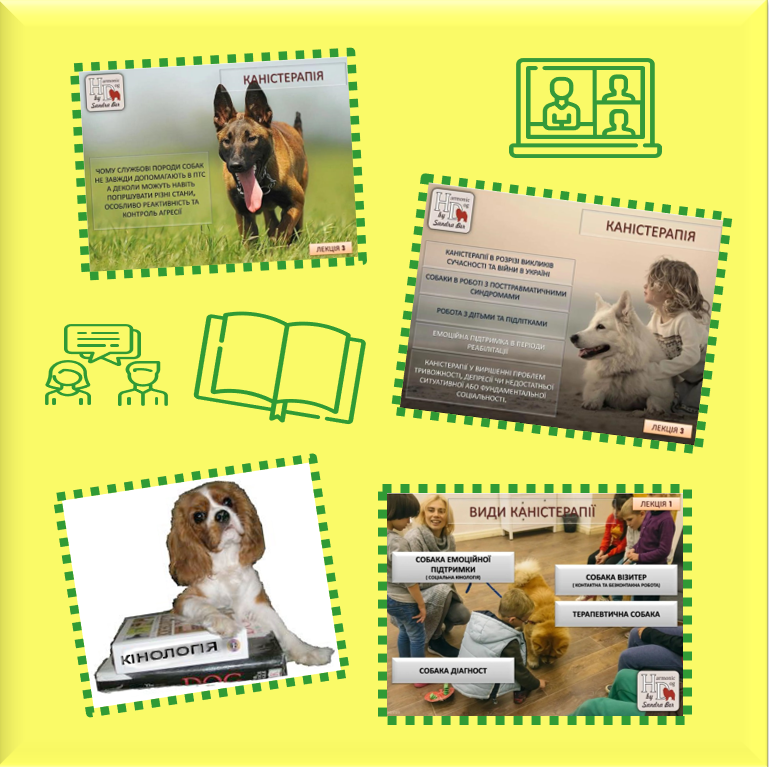At Sumy National Agrarian University a webinar “Basic Postulates of Canistherapy” was held with the participation of experienced canis therapist O. BEREHOVENKO.
The ongoing war on the territory of our country poses challenges to educators as for the development of new relevant educational programs and courses aimed at overcoming the harmful consequences of military actions for the country’s economy, environment and public health.
The webinar “Basic Postulates of Canistherapy”, held at the Sumy National University, was devoted to the issue of finding new effective ways to restore the mental and psychological health of the residents of Ukraine. The event was organized by the joint efforts of scientists of the Faculty of Biology and Technology and the Centre for Advanced Training and Retraining, Improvement of Managers and Specialists.
The speaker of this webinar was an experienced canine therapist, Head of the Harmonic Dog Social Canine Centre and the Child and Dog Rehabilitation and Canine Therapy School in Lviv, developer of canine methods, rehabilitation and training programs in various areas; leader of educational programs on canister therapy, seminars of lectures on psychophysiology and the formation of dog behaviour; FCI expert O. BEREGHOVENKO.
The seminar brought together participants from various regions of Ukraine and EU countries. Over 100 listeners during two lecture days on November 23 and 24 had the opportunity to get acquainted with canis therapy as a method of rehabilitative influence. The participants gained new knowledge about the biological features of dogs and humans, formed as a result of evolution, and the process of their interaction. Also, the issues of animal selection and the principles of raising dogs for canister therapy were covered in a very accessible and interesting way.
Performing the webinar enabled the listeners to obtain the methodological principles of organizing work in this direction and to effectively organize and implement them in their further professional activities. We hope that this event will contribute to the proper organization of the canistherapy process, the cohesion of specialists related to the restoration of the health of vulnerable population groups, and the development of new educational programs.


